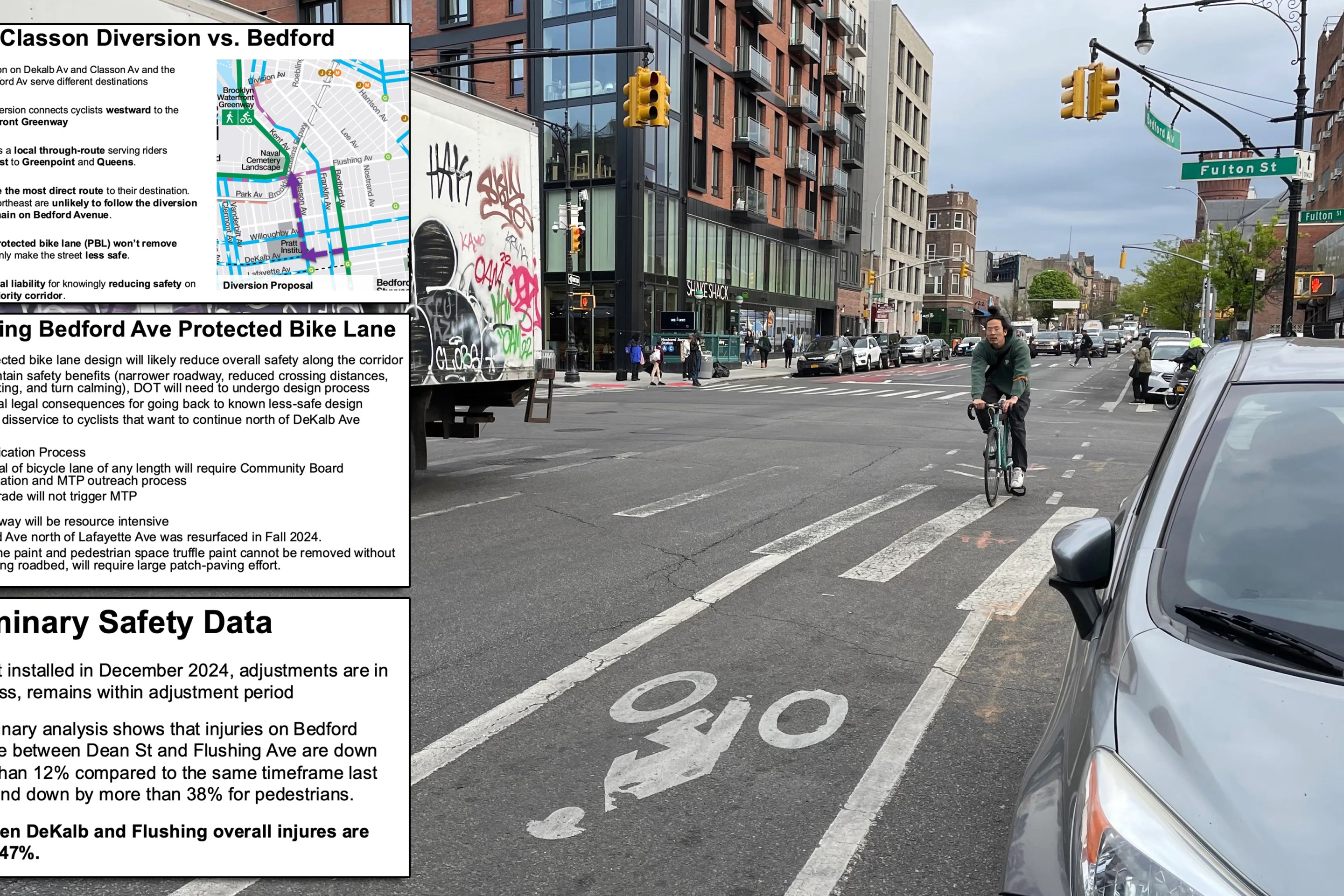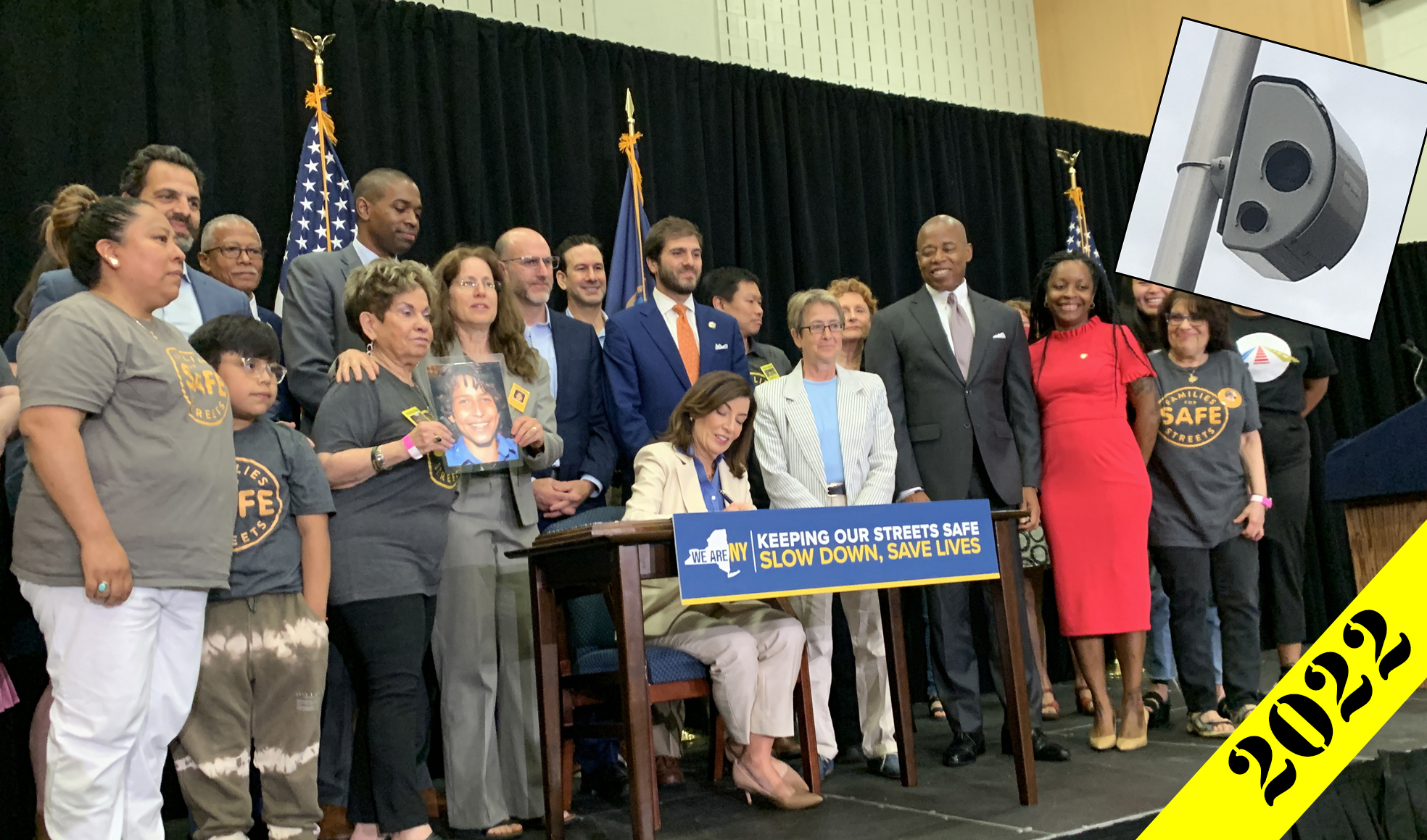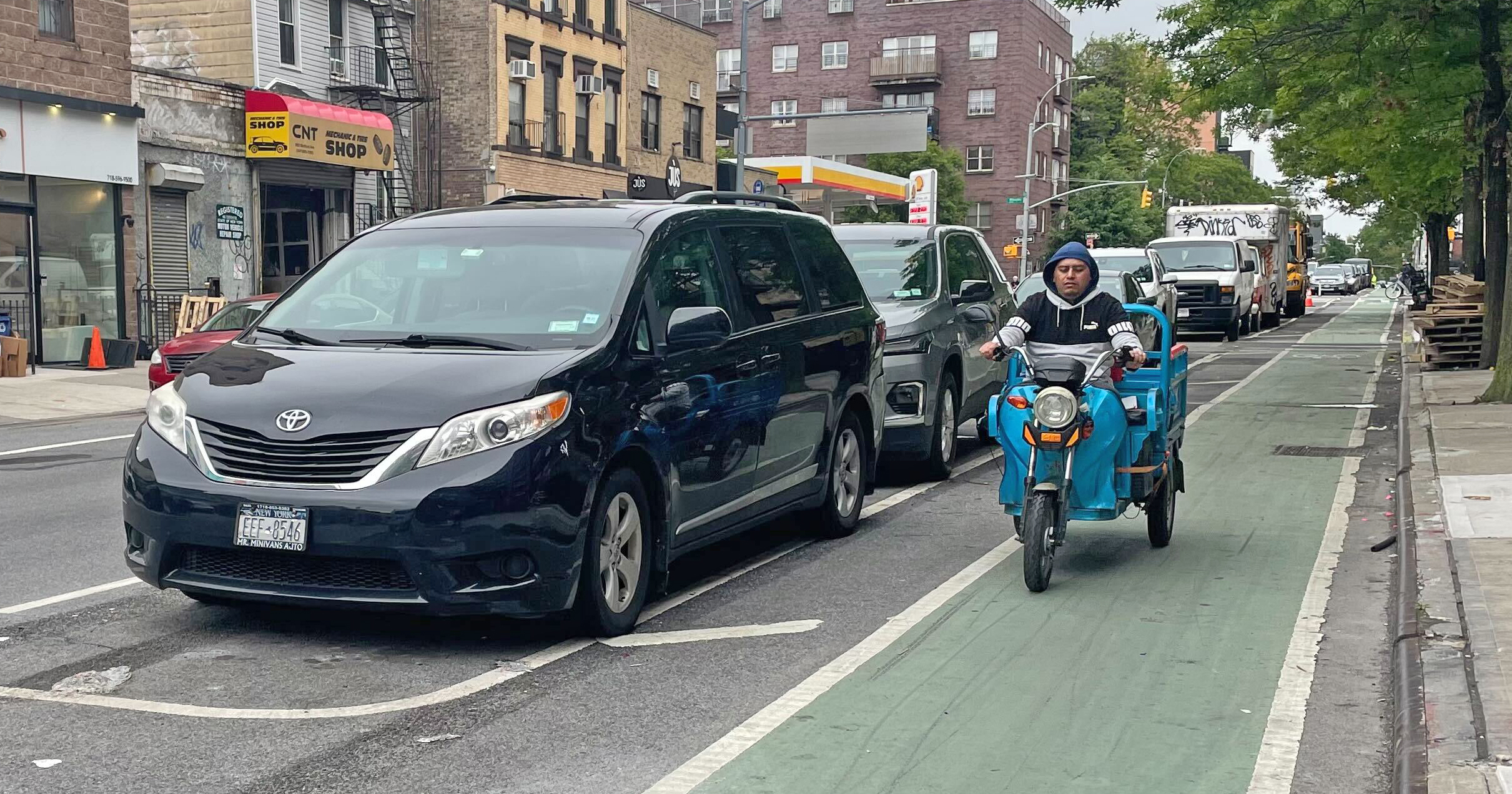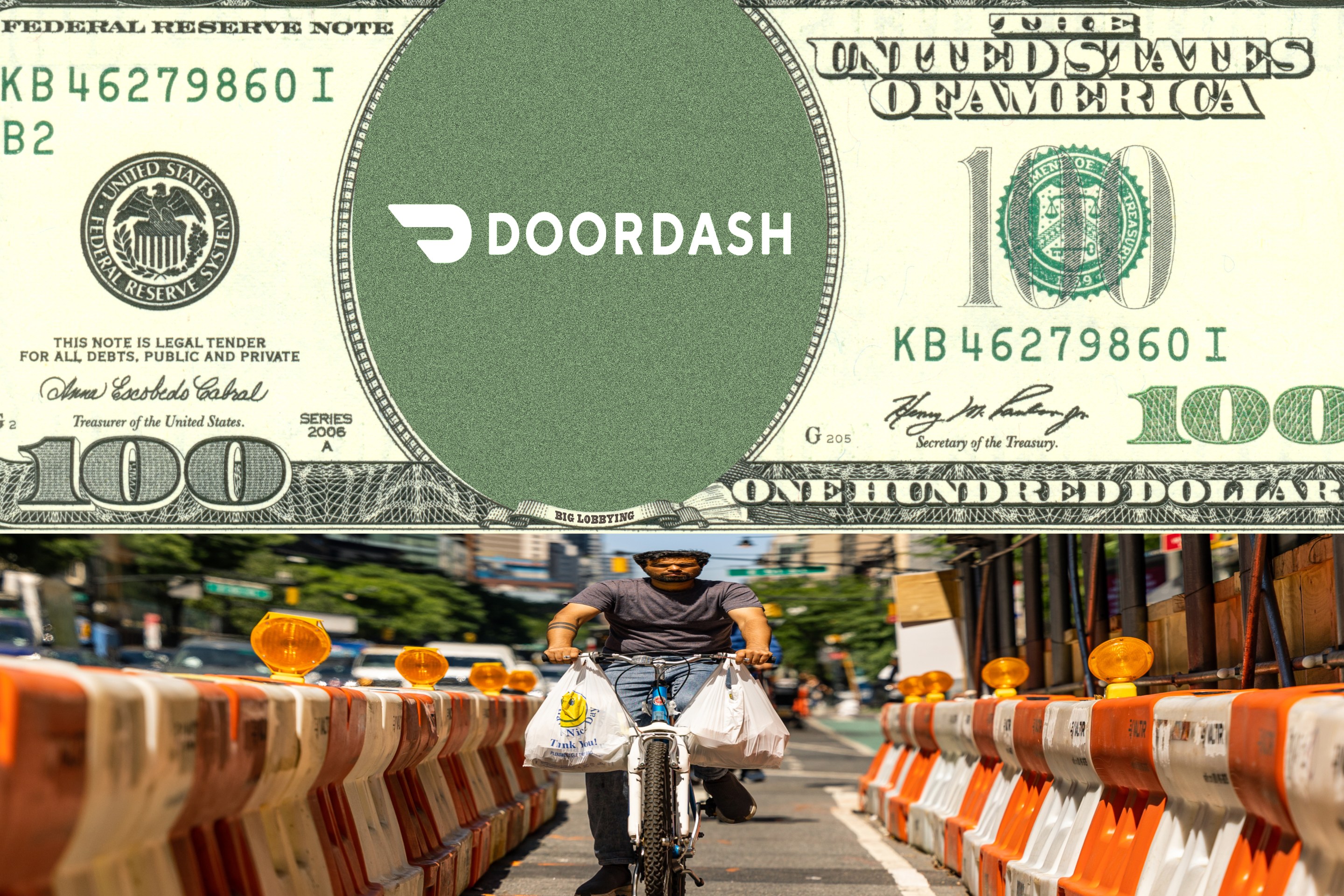The Federal Highway Administration is seeking to impose a new layer of bureaucratic review on New York City bike projects, which could significantly delay the implementation of street redesigns that have proven to reduce traffic injuries and deaths.

According to a source in city government, FHWA wants the New York State DOT to review each individual NYC bike project design before releasing federal funds for implementation. This would be a major departure from the existing practice in which the state DOT approves a package of bike projects for funding simultaneously, without performing design reviews of each one. If the state DOT starts reviewing every single NYC bike project going forward, it could dramatically slow down the addition of new bike lanes, delaying each by up to two years, the city official said.
Currently, NYC DOT pays for many of its bike projects using funds from the federal Congestion Mitigation and Air Quality program. These CMAQ grants have laid the foundation for the city's bike network expansion over the past six years. The federal grants first pass through the state DOT, which then releases the funds to the city.
According to the state DOT, the state has to review federally-funded projects classified as capital construction. NYC bikeways are implemented primarily through contracts that involve striping but not capital construction, and the state DOT confirmed that for years most bike lanes have been built without being classified as "construction projects." FHWA now wants to reclassify bike lanes, triggering the more time-consuming review procedure.
While the impetus to reclassify bike lanes appears to have originated with state DOT sometime earlier this year, the agency has since backed away from the idea. The feds remain intent on pursuing the much more time-consuming process, however, with FHWA saying it is applying review protocols established by the 1970 National Environmental Policy Act.
The city official says the review procedure is flexible, and there is no need to reclassify bike lanes. The current, streamlined review procedure has led to the implementation of projects all over the city with demonstrable safety benefits, routinely lowering the rate of traffic injuries by more than 25 percent [PDF].
Street safety advocates are alarmed at the prospect of a much lengthier bureaucratic review for New York City bike improvements. “The current process is working well, and has dramatically improved safety for bikers, pedestrians and motorists alike,” said Paul Steely White, executive director of Transportation Alternatives. "Such onerous red tape would add cost and delay and would effectively put lives in jeopardy while making it virtually impossible for Mayor-elect de Blasio to achieve his goal of increasing bicycling and reducing fatalities and injuries.”
The American transportation agency with the most extensive track record of installing bike lanes on urban streets is NYC DOT, and the safety record of the agency's bike projects is unequivocally positive. One reason that New York City has been able to deploy bike projects as quickly as it has is the lack of interference from agencies higher up the funding pyramid. Other cities haven't been so fortunate.
FHWA is seeking to impose needless oversight that will tie up sustainable transportation projects in the name of "environmental review" -- how perverse is that?





